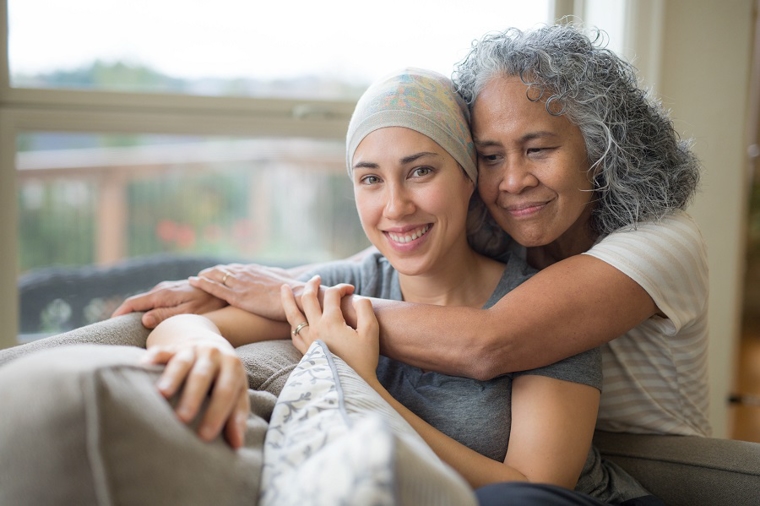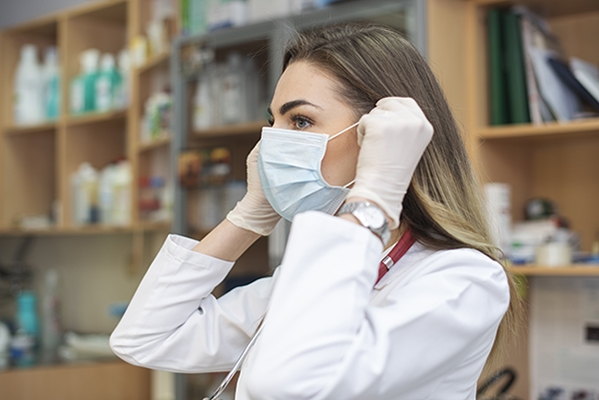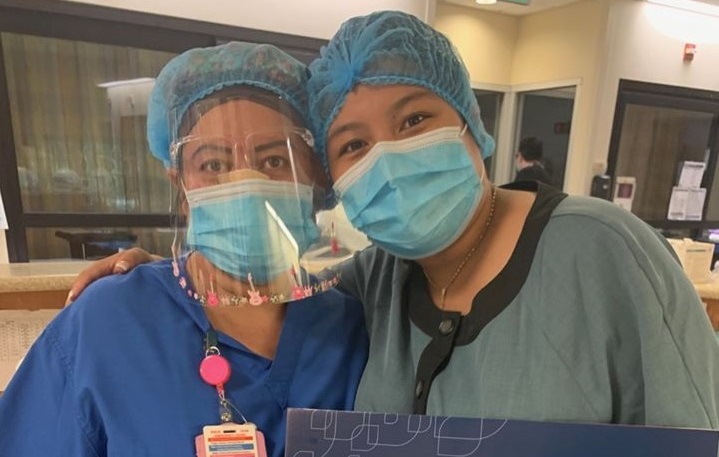COVID-19 and breast cancer treatment: Combating fears with knowledge
Oct 12, 2020

If you’ve recently been diagnosed with breast cancer, you may be flooded with anxiety, fear and apprehension. You may be grappling with next steps, worrying whether you’ll tolerate side effects and wondering how you’ll manage this on top of your daily life. Add to this the uncertainties of the pandemic, and it can be overwhelming.
One of the best ways combat fear is with knowledge. Not only can it help you to focus your energy on something positive, it can help reduce your fears and feel confident in your plan and your care team. Here are a few tips on how you and your care team can work together.
Know what to expect
Work with your doctor to learn and understand how to protect yourself from the virus. Some of the precautions to make your cancer treatment safer include:
- Modified treatment plans.Work with your doctor and care team to carefully weigh the risks of modifying your treatment schedule. Your doctor may consider altering your schedule to allow more time between visits, but only if it’s safe and it doesn’t impact the treatment’s ability to work as originally intended.
- Virtual visits in lieu of in-person visits.Your oncologist may be able to schedule some of your appointments as virtual visits. So, instead of meeting in-person, you can meet by video on your phone, tablet or desktop.
- Testing for COVID-19.You may be asked to get tested for the virus prior to your first visit or before certain treatments such as surgery, radiation or chemotherapy. This added step ensures your body is strong, healthy and ready to receive treatment.
- Safety precautions.Work with your care team to understand the safety precautions at your oncologist’s office. A call the day prior to an appointment to confirm that you don’t have symptoms, temperature checks before entering the facility, wearing a mask and rigorous disinfecting of all surfaces are just a few of many ways your care team is protecting you from the virus.
Steps you can take
Undergoing breast cancer treatment can be life changing. Take steps to prepare, avoid going out and learn how to protect yourself when your immune system may be weakened. Here are a few ideas:
- Prepare a calendar. Consider a day planner, your phone or an online calendar to organize and keep track of your appointments. This will prevent you from scheduling too many activities for the same day or week.
- Develop a care team contact list.Keep a list of who on your care team to contact and for what. If something comes up, you’ll know exactly who to go to and how to reach them.
- Ask your family and friends for help.Getting groceries and running errands are just a few ways your friends and family can help you avoid the public and reduce the risk of infection. Family and friends sincerely want to help; Allow yourself to let them. Don’t be afraid or embarrassed to be specific about what you need and how they can help.
- Stay connected.Spend time with those you love—even if it’s virtually. Simple gatherings on a video chat can reduce stress and remind you that you are surrounded by people who love and care about you.
- Get plenty of sleep.Sleep is essential to the healing process. Get seven hours of sleep each night. Try taking naps during the day. If you have any difficulty sleeping, talk with your care team.
- Schedule relaxing time.If you enjoy reading, gardening or listening to music, make it a priority and put it on your calendar.
- Do things you enjoy.Eat at your favorite restaurant (or get take-out!), make a new recipe or watch your favorite movie. Take this time to focus on you.
- Eat healthy and exercise.There’s nothing like the feeling when you eat well and get exercise. These lifestyle choices can give you the energy and nutrients you need to beat cancer.
- Protect yourself from the virus.Wash your hands frequently with soap and water, wear a mask when you go out and stay away from crowds or anyone who is sick.
Talk with your care team
If you want to learn more tips for preparing for breast cancer treatment during the COVID-19 pandemic, contact our cancer care team at one of2020欧洲杯亚博.
Related articles

Managing mental health during a pandemic: Q&A with Dr. Gary Hoffman
October 6, 2020

COVID-19 Myths vs. Facts
September 17, 2020

'That could be one of my family members': Mother-daughter housekeeping team faces COVID realities daily
July 29, 2020